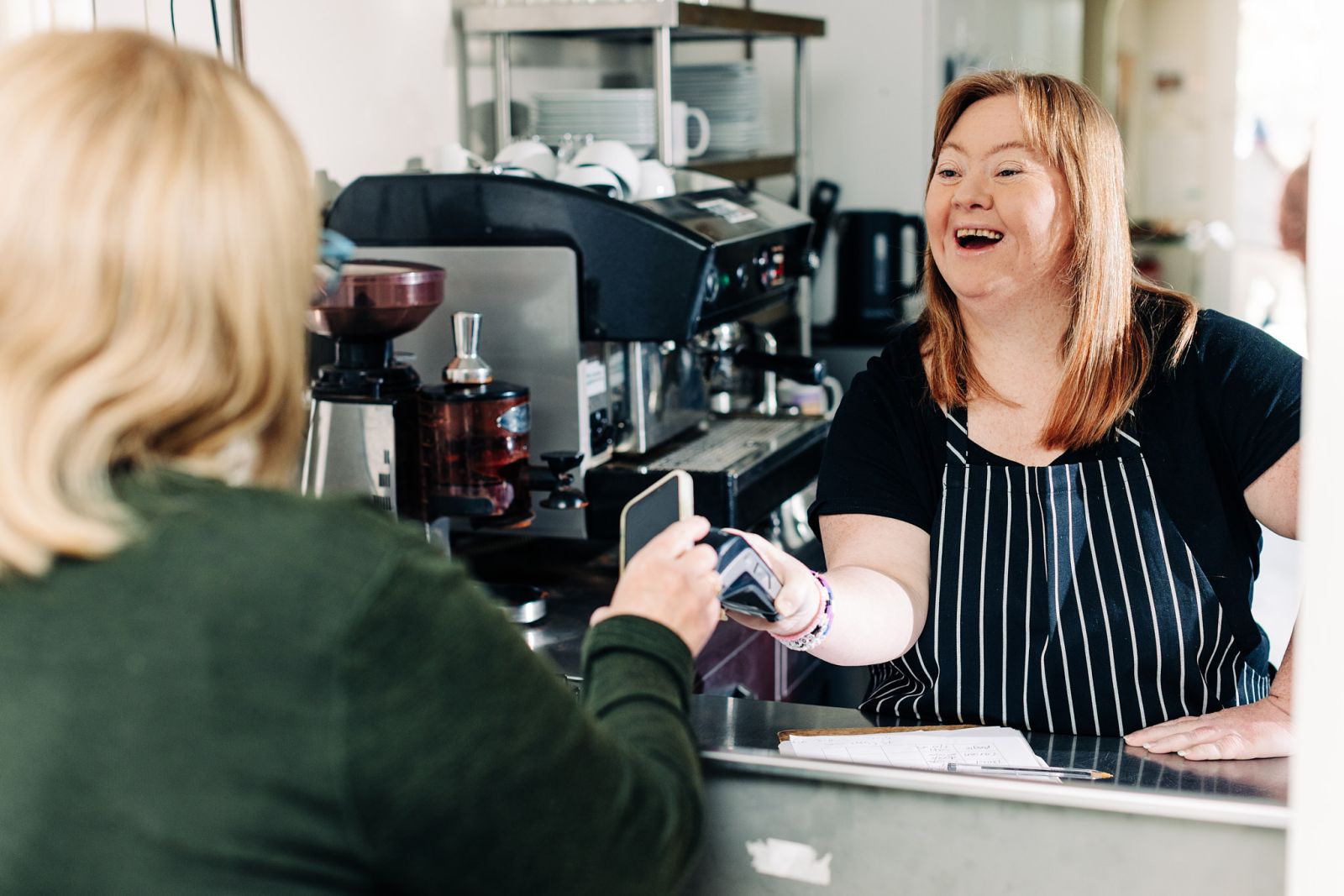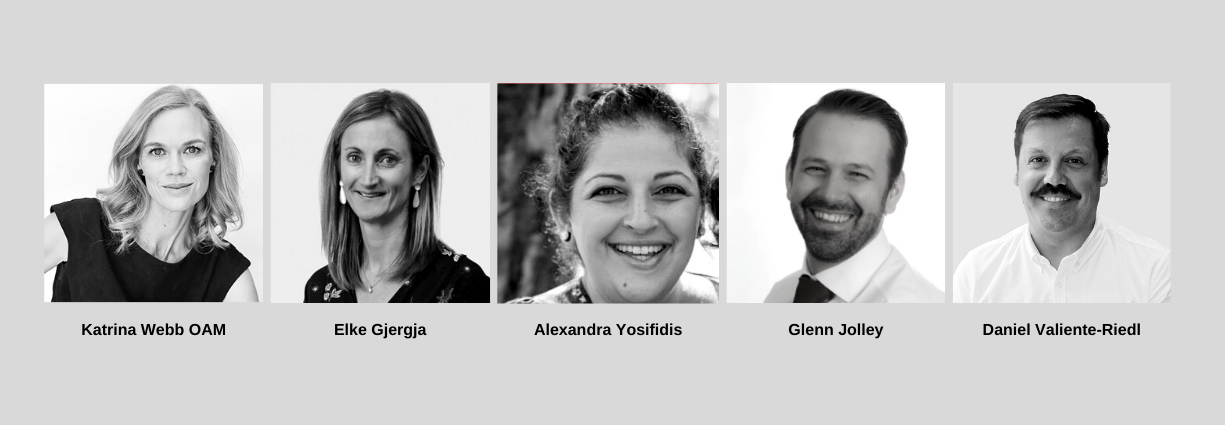How employers can unlock the untapped dividends of disability employment

To enable employers to turn up the dial on disability inclusion in the workplace, JobAccess organised its 26th Employer Seminar in a first-ever virtual panel discussion format for Victoria-based organisations.
With over 110 registered participants representing various public and private sector industries, the webinar saw diversity leaders from four disability-inclusive organisations share their experiences and discuss supports to help businesses access the unique skills people with disability have to offer.
Be curious about a person’s potential.
In her keynote address, Triple Paralympic champion, Katrina Webb OAM, encouraged employers to take a different perspective on disability and approach the conversation with a person’s potential in mind.
“I find it interesting that when disability is mentioned or when my parents' friends called (upon hearing of my disability), the first thing they said to my parents was ‘sorry’. I want to challenge our audiences and people on that. Why do we say sorry?” she questioned.
“Instead of saying sorry, be curious. Ask ‘what have you learned’ or ‘what skills have you developed that maybe no one else has that can be part of your workplace’?”
Katrina shared some pivotal moments in her journey to success both on and off the sporting field – from winning Paralympic medals to representing the International Paralympic Committee.
“For me, diversity is simple as being able to take your whole self everywhere you go and a workplace that enables it. Because when we do that and can bring our story with us, it enables a space for others to do the same,” Katrina said.
Social inclusion works for everyone.
Highlighting the value of harnessing Australia’s unique diversity and its potential, JobAccess General Manager Daniel Valiente-Riedl said, “Over the years, various research has highlighted the clear benefits of building and supporting a socially diverse and inclusive workforce. This includes the participation of people with disability in employment.”
Citing a Deloitte Access Economics survey, he shared, “Social inclusion has a quantifiable impact on workplace productivity – to the tune of $5 billion annually, due to higher creativity and innovation that thrives in inclusive workplaces.”
“For employers, improving disability confidence is imperative. This is because of the prevalence of disability and its intersectionality with other forms of diversity, and to access a larger pool of candidates,” Daniel added.

Challenges to disability employment.
The panel shined a spotlight on the challenges they encountered early on in their disability employment journey.
Alexandra Yosifidis, Recruitment Strategy and Talent Acquisition Lead at the City of Boroondara Council, recalled, “The lack of knowledge, fear of the unknown, and the fear of making mistakes and not knowing where to go to get support were key challenges. Also, we did not have the right internal mechanisms to support employees and their leaders.
It (disability employment) needs to be part of a continual conversation. We are good at creating action plans and ticking things off, but having an ongoing discussion to implement sustainable practices is vital.”
Director, Corporate Services at MedHealth, Elke Gjergja, added, “In our 2020 diversity survey, over 17% of respondents indicated they lived with disability, permanent illness or condition.
The challenge that sits with us now is to not rest on our laurels but to work hard to ensure that every team member's experience, every client or customer who enters the business at every location, embraces diversity and inclusion in everything we do. And the retention piece is one we will explore in the coming year as part of our key priorities.”
Glenn Jolley, Recruitment Manager of Attraction, Operations and Projects at Department of Justice and Community Safety (DJCS), recounted, “Based on the challenges we found in our recruitment process, we needed to dive in there and extrapolate things out to make it more inclusive.
For instance, we needed a language that was representative of the community we try to serve. Another challenge was the ‘unknown’ with managers and their disability confidence and the need to provide more robust materials to support them through the recruitment process.”
First steps to disability confidence
Gaining disability confidence is not something one can achieve overnight – it is the small wins along the way that lead to meaningful change.
Alexandra stated, “Working with the National Disability Recruitment Coordinator (NDRC) was invaluable as it gave us an objective view of our current state and create ideas for action. It gave us a starting point to plan, knowing we don't have to do it all in one day.”
She recommends, rather than to feel overwhelmed with a long list of tasks, breaking it down in a way that works for the organisation, and to go for the small wins while planning for bigger things.
“Cultural change comes from the education piece. The disability awareness session the NDRC hosted for us during COVID last year was an invaluable part of the process. It enabled conversations that potentially would not have happened. It provided confidence, and those conversations turned into placements,” Alexandra added.
Glenn shared, “We started our journey probably three years ago, and while we have made inroads, we still have a long way to go. There are always things we are uncovering that we can improve upon.
The first steps were around the recruitment review we had done some years ago, and partnering with the NDRC to refresh what that recruitment review was and identifying the missing pieces, highlighted some of the gaps in our process.”
Elke explained, “We partnered this financial year with the NDRC and have found that partnership is invaluable to our business. Like a fresh pair of removed or independent eyes, sometimes, when you work in a space, you can't see what is right in front of you as an opportunity for change.
One of the highlights of the work we have done was the inclusion of a diversity statement of our job advertisements. It was a small, simple but powerful way to express our commitment to potential candidates that you are welcome here.”
Making disability employment work
Finally, the panel shared tips and strategies that helped them embrace the potential of disability employment.
“The key take out from our partnership with the NDRC is that knowledge is key. It is about knowing where the gaps are, putting them into a project plan and taking action. It is vital to create sustainable initiatives that don’t get lost if a key contact leaves the organisation,” Alexandra said.
Elke added, “Don't be scared to take those first few steps. Often, it is the quick wins that can make a big difference not only to people with disability who are within our workforce or wanting to be within our workforce, but also in building the confidence piece. When you can see how a small thing can drive a significant impact, it gives the organisation confidence and energy.”
Glenn said, “We developed specific programs for people with disability to enter the workforce through DJCS as an identified pathway. We have built on those particular programs, and that has been a key focus. We provide scholarships for people with disability, starting in a justice-related field. We have all these pillars in place, and it has been about building the bridge between those pillars.”
Where can employers start?
In conclusion, Daniel summarised the steps employers can take to further their disability inclusion efforts:
- First, visit the JobAccess Employer Toolkit, a collection of resources to help employers build disability confidence and hire people with disability. The Toolkit covers a range of topics relating to disability employment, including creating inclusive policies, finding and interviewing jobseekers with disability, and making adjustments in the workplace.
- Second, employers can find and connect with a local Disability Employment Services (DES) provider to discuss how they can help find suitable candidates with disability.
- And finally, larger employers can contact the NDRC to discuss a 12-month partnership for tailored support to build disability confidence.
The National Disability Recruitment Coordinator hosts a number of Employer Seminars each financial year in major business centres across Australia.
If you’re interested in attending a free seminar on disability employment, register for updates, email or call JobAccess on 1800 464 800.
Last updated:
